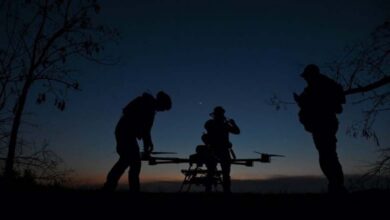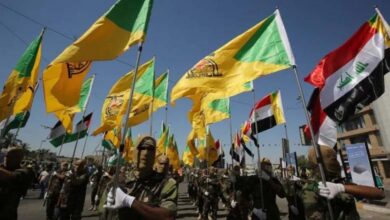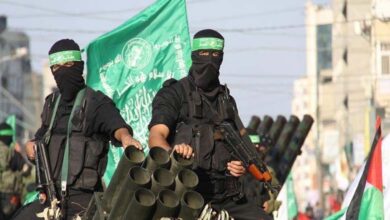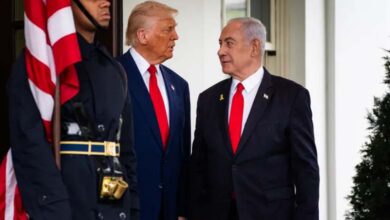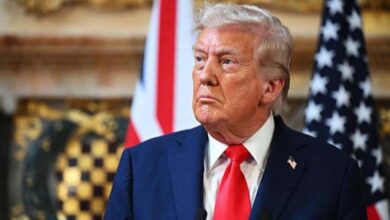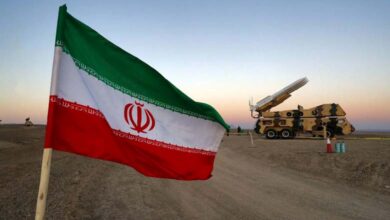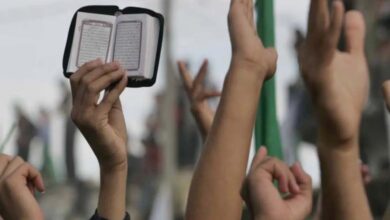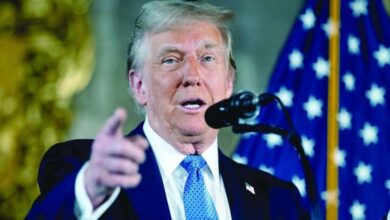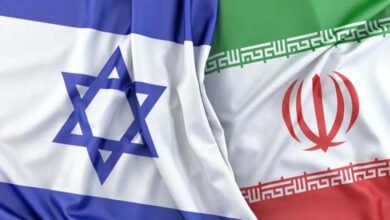Trump’s threat to Nigeria: turmoil at the Pentagon and a reshuffling of priorities
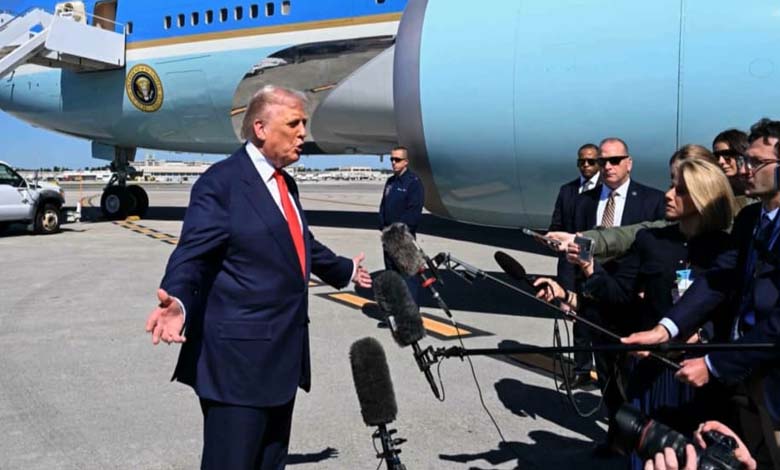
U.S. President Donald Trump’s threat to strike Nigeria has caused turmoil within the Department of Defense (the Pentagon), which has begun reassessing its strategic priorities.
When Trump unexpectedly threatened earlier this week via social media to carry out strikes in Nigeria, Defense Secretary Pete Hegseth promptly replied, “Yes, sir.”
-
The Airport Meeting: Why Trump and Xi Chose the Runway Instead of Palaces
-
A frog, a chicken and a dinosaur against Trump: Democrats’ satirical protest
However, several Pentagon officials who spoke to Reuters described their shock at Trump’s orders, as they tried to grasp the priorities of an administration that, in recent months, has elevated issues once considered marginal — such as nuclear testing, democracy in Venezuela, and cocaine trafficking.
Pentagon officials had largely expected the Trump administration to prioritize border security, China’s growing military power, and pressure on NATO allies to stand up more firmly against Russia.
Yet Trump’s recent announcements about nuclear tests and Nigeria surprised many, appearing to reorder the Pentagon’s agenda.
Commenting on Trump’s statement about Nigeria, one senior U.S. military official, speaking on condition of anonymity, said, “I think we all learned about it at the same time.”
-
Trump threatens to use it: What is the Insurrection Act?
-
Bagram Air Base: Legacy of the War on Al-Qaeda and Holder of the Nuclear Secret
No specific orders from the Pentagon
In a post on his social media platform Truth Social last Saturday evening, Trump accused the Nigerian government of allowing Christians to be killed.
He ordered the Pentagon to prepare for “possible action” and warned that any strikes would be “swift and fierce.”
When asked on Sunday whether he was considering deploying ground troops or carrying out airstrikes in Nigeria, Trump responded, “Maybe… I mean, maybe other things too… I’m considering a lot of options.”
Nigeria lies more than 3,000 kilometers from Djibouti, home to the United States’ only permanent military base in Africa.
-
Sovereignty dispute in Scarborough: a new diplomatic confrontation between the U.S. and China
-
Trump Denies Approving Israeli Strike on Hamas Leaders in Doha
Military experts noted that the U.S. Army would need additional resources in the region, as well as time to gather the intelligence required to effectively target extremist groups.
Boko Haram, perhaps Nigeria’s most infamous terrorist organization, became a U.S. priority more than a decade ago after the kidnapping of nearly 300 schoolgirls — most of them Christians — from a town in the country’s northeast. Many were raped and forced to convert to Islam.
However, Nigeria has faded from U.S. focus in recent years, and it remains unclear what specifically prompted Trump’s announcement on Saturday.
-
Eyes in the sky and patrols on the ground: securing Trump’s visit to Britain
-
Trump plans to revive the War Department: what do we know about the Pentagon?
White House spokeswoman Anna Kelly stated, “President Trump listens to many trusted advisers on every issue, but he is the final decision-maker on all matters of foreign policy. In this case, he was motivated to act against the threat facing Christians in Nigeria.”
Evangelical leader Gary Bauer told Reuters that individuals increasingly concerned about attacks on Christians had lobbied Trump prior to his warning to Nigeria.
Trump’s threat came a day after his administration added Nigeria to the list of “countries of particular concern,” which includes nations the U.S. accuses of violating religious freedoms.
-
Is War Approaching? Venezuela Deploys Warships and Drones in Response to U.S. Moves
-
European Forces Under U.S. Command?
“I know the president heard from many people urging him to take action,” Bauer said.
A Pentagon official told Reuters that some members of the U.S. military had anticipated potential action after Senator Ted Cruz spoke out in September and October about what he described as the “genocide of Christians” in Nigeria, which he said had claimed tens of thousands of lives over the past fifteen years.
However, the defense official said he was unaware of any concrete orders to carry out operations in Nigeria.
-
Sources Reveal Shocking Pentagon Intelligence Report on Iran’s Nuclear Program
-
Immigration Protests – Will Congress Step In to Restrain Trump?
Analyst: a ‘dire situation’
Nigeria, home to more than 200 million people and around 200 ethnic groups, is divided between a Muslim-majority north and a Christian-majority south.
For over fifteen years, Boko Haram and the Islamic State’s West Africa Province have wreaked havoc across the country, killing thousands.
In central Nigeria, Muslim herders and mainly Christian farmers frequently clash over access to water and grazing land. In the northwest, militants routinely raid villages and kidnap residents for ransom.
-
Trump and Foreign Policy: 4 Keys to Understanding the Chaos of the First 100 Days
-
Leaks or Settling Scores? Behind the Pentagon Dismissals
Victoria Coates, a former Trump administration official now with the Heritage Foundation, said that as a major oil producer, Nigeria must ensure security to reassure oil companies that they can operate safely there. “The situation is extremely dire,” she noted.
According to analysts, most victims of terrorist violence in Nigeria are in fact Muslims.
Former U.S. Special Envoy to the region J. Peter Pham, who served during Trump’s first term, stated that Christians have suffered disproportionately compared to their population size.
“At the very least,” he added, “Trump is drawing attention to an issue that I believe has been neglected for far too long.”


